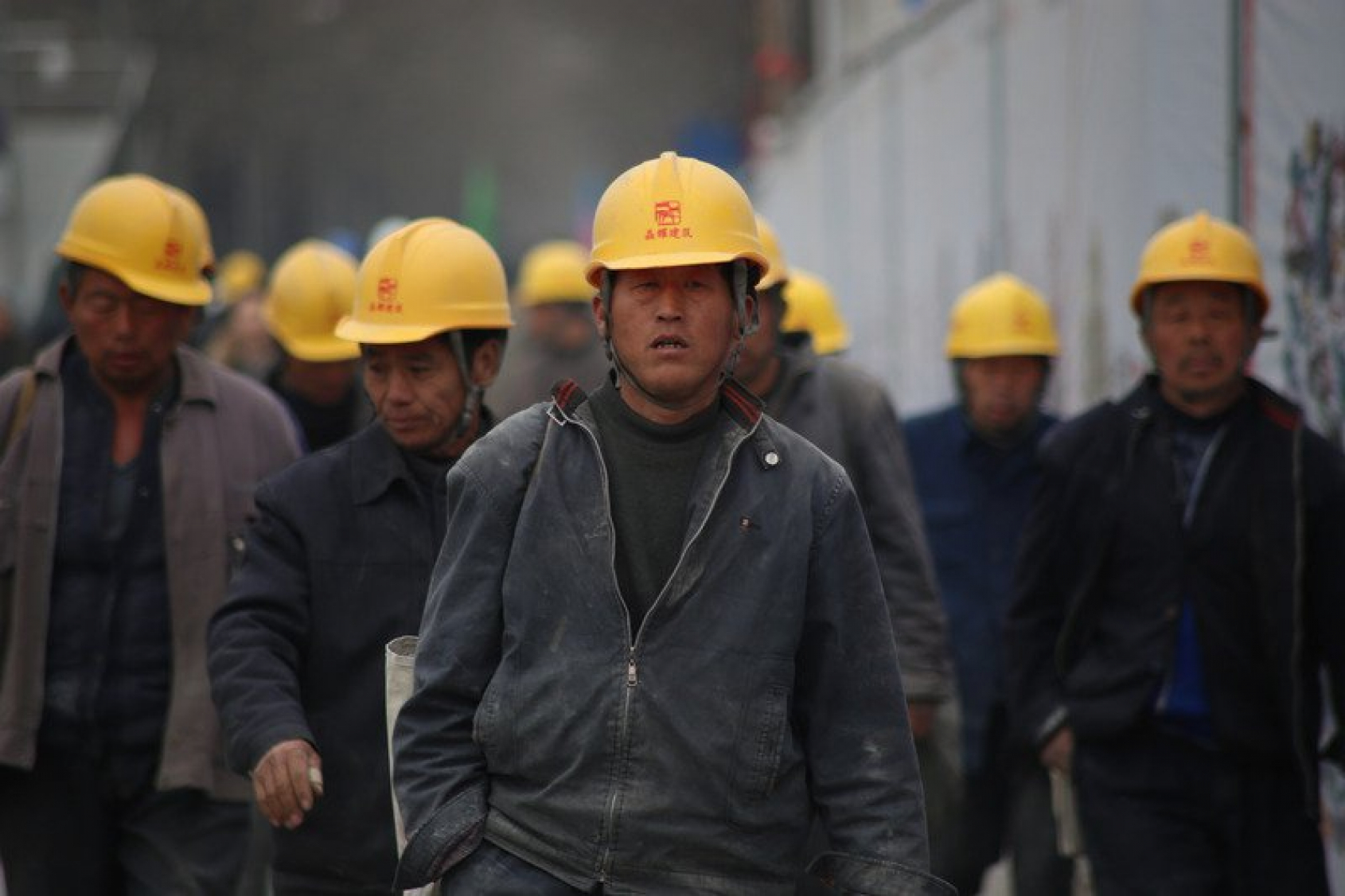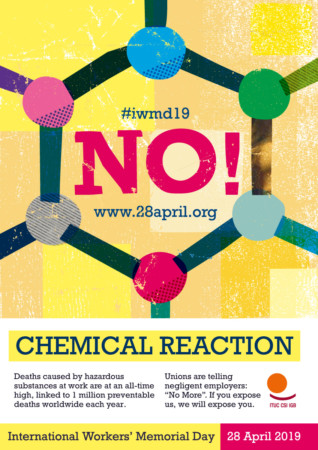
By Victor Figueroa, ITF strategic researcher
Occupational Safety and Health (OSH) are crucial issues for workers everywhere in the world. Over decades workers in different countries have won recognition for their right to work in safer environments. In some countries OSH regulations are a key tool in defending workers’ rights.
The 28 April is a day for workers everywhere to remember the struggles of the past, but also to project these struggles forward. For example, new technologies and work practices based on them are creating new challenges to worker health and safety, and new technologies also offer new opportunities to protect existing rights.
Amazon’s high-tech carrot and stick
This week I was in Spain discussing how new technology affects workers in Amazon facilities there and I was horrified at the level of control and the complete lack of consideration of worker well-being evident in the way tech is used in the warehouses. As a tech leader and a growing company, Amazon is a worrying example of the challenges that increasing numbers of workers will face in future, as monitoring and benchmarking technologies become more widespread.
Workers described to me how technology is being combined with company culture and intimidation to create a high-pressure environment rife with injuries and stress. ‘Power hours’ and ‘Ready, Steady, Go!’ systems are combined with positive exhortations (‘the kids won’t get their presents if we don’t smash this target!’) provide the carrots, while technology provides the stick to create a working environment where people are labouring at the limit of their endurance for hours and days at an end. The physical and mental toll is severe.
The Amazon workers spoke of operating under the supervision of algorithms that set the pace of work, with no-one knowing what the criteria being used were, or who had decided they were possible or reasonable. The actual work rate and the target work rate used to be displayed above some work stations, but managers found workers would slow down a bit if they were above the target rate, and so the indicator was removed. Workers work harder if they have no idea if they are meeting their targets. It helps to beat targets if managers and supervisors chivvy people along with the dreaded ‘estas flojo’ (you’re behind).
Over monitored, overworked
On top of this, chipped ID cards tell the system where workers are, and track them around the facility. Workers’ every movement is followed and team ‘leads’ or managers jump on the smallest infraction. Workers can lose two or three days’ pay for leaving a door ajar, for example. Workers also reported surveillance cameras in the changing rooms, but nobody knows who has access to the footage or what it is used for. It is another example of tech not being transparent to workers.
But technology does not just track the Amazon workers’ around the facility, it also conditions their work rate. Screens at workstations show where workers should put items, and scanners scan items as they are moved about. The algorithms decide what goes where when, and how long it should take you. The same movements are carried out again and again. One worker said, “it turns you into a robot and you are left numbed”. Workers in some workstations are literally in a cage for eight hours at a time with no social contact at all, in order to keep them away from the robots that bring them the shelves. “You could collapse in there and nobody would know” they said. One worker spent two months in the cages. “I wanted to die at the end of each shift”, they said.
The workers are carrying out hundreds, sometimes thousands of repetitions of the same movement in every shift, causing high rates of injury over time. The most common injuries are to wrists, hands and knees, although in some workstations it is back injuries. The company refuses to accept the injuries happen on the job, with managers accompanying workers reporting injuries while union reps are kept away. ‘You don’t want to work?’, some are asked by the managers. Workers say that they are utterly exhausted at the end of a shift, laughing bitterly at a question about whether they cycle to and from work: “I tell you, nobody wants to ride a bike after eight hours of that work.”
High-tech occupational health, safety and humanity
In this environment, technology is used to push people to the limits of their physical and emotional endurance. As such technology becomes more common it is vital that workers everywhere are defended by Occupational Safety and Health measures that prevent technology from applying arbitrary and inhumane work rates. Workers need to know what the rates are, and they should be able to change them. Workers need proper rest periods, particularly if they are working with screens and in isolation from others. And workers should have access to the data produced by monitoring and surveillance equipment so that they know what the tech is doing and what for.
Just as tech is used to monitor workers and force them to work harder, it could be used to monitor working conditions and protect workers from abuse. It all depends on who controls the tech and what it is used for.
Workers do not want digital overseers, we want tech that augments our capacities, that enables us to work better, not just harder. Amazon, are you listening?
https://www.itfglobal.org/en/news/international-workers-memorial-day-making-technology-work-us-not-against-us

 Safe work is a right not a privilege. International Workers’ Memorial Day, held on 28 April every year, brings together workers and their representatives from a
Safe work is a right not a privilege. International Workers’ Memorial Day, held on 28 April every year, brings together workers and their representatives from a



 ADAO
ADAO
